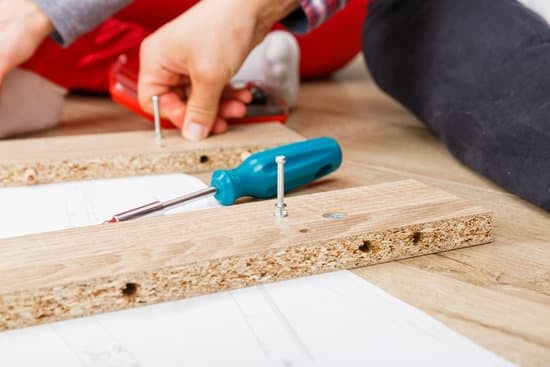Do home improvements pay off? This is a question that many homeowners grapple with when considering making changes to their properties. There is a common misconception about the return on investment for home improvement projects, leading to uncertainty and hesitation. Making informed decisions regarding these projects is crucial in order to ensure that they indeed pay off in the long run.
When it comes to home improvements, it’s important to understand the potential impact on the value of your property. Whether it’s a kitchen remodel, bathroom upgrade, or landscaping project, each improvement has the potential to add value to your home. However, understanding the cost versus value and considering various factors can help homeowners make informed decisions about which projects are worth pursuing.
Factors such as location, market trends, and the condition of the home can all play a significant role in determining whether a particular home improvement project will pay off. Additionally, deciding between tackling these projects as a do-it-yourself endeavor or hiring professionals also requires careful consideration in order to maximize the return on investment.
By exploring these aspects and real-life case studies, homeowners can gain valuable insights into how strategic and well-planned home improvements have the potential for significant pay off in the long run.
Types of Home Improvements
When it comes to home improvements, there are various areas of the house that homeowners can choose to upgrade. Some of the most popular types of home improvements include kitchen remodels, bathroom upgrades, and landscaping projects. These types of improvements not only enhance the aesthetic appeal of the home but also have the potential to provide a good return on investment.
According to a report by Remodeling Magazine, certain home improvement projects tend to have a higher return on investment than others. For example, a minor kitchen remodel recoups about 81% of its cost in added home value, while a bathroom remodel typically recovers around 70%. On the other hand, landscaping projects also yield significant returns with an estimated recovery rate of around 100-200% of their cost upon resale.
It is important for homeowners looking to embark on home improvement projects to carefully consider which areas of the house they want to upgrade. By understanding the potential return on investment for each type of improvement, homeowners can make informed decisions and ensure that their home improvements pay off in the long run.
| Type of Home Improvement | Estimated Return on Investment |
|---|---|
| Kitchen Remodel | 81% |
| Bathroom Upgrade | 70% |
| Landscaping Project | 100-200% |
As shown in data from Remodeling Magazine, certain types of home improvements are more likely to pay off when it comes time to sell your house or property. This data shows that it is crucial for homeowners to consider not just their personal preferences but also what kind of investments are likely to increase their property’s value.
Cost vs Value
When it comes to home improvements, one of the biggest concerns for homeowners is whether the cost of the project will be worth the value it adds to their property. This is a valid concern, as not all home improvements pay off in the long run.
However, certain types of home improvements tend to have a higher return on investment than others. According to Remodeling magazine’s 2021 Cost vs. Value report, certain projects are more likely to recoup a greater percentage of their costs when it comes time to sell.
For example, garage door replacements typically recoup over 94% of their costs, making them one of the most cost-effective home improvement projects. On the other hand, major kitchen remodels may only recoup around 58% of their costs. It’s important for homeowners to carefully consider these figures when deciding which projects to take on.
In addition to analyzing cost vs value data specific to different types of home improvements, homeowners should also take into account factors such as neighborhood trends, duration of residency in the home, and personal preferences.
For instance, if you plan on living in your home for several years after a renovation or if there’s a particular feature you’ve always wanted in your house but hasn’t been previously available this could impact how much weight you give cost vs value considerations when planning your next project.
| Home Improvement Project | Percentage Return on Investment |
|---|---|
| Garage Door Replacement | 94% |
| Major Kitchen Remodel | 58% |
Factors to Consider
When considering home improvement projects, there are several factors that homeowners should take into account to determine whether the investment will pay off in the long run. Here are some key factors to consider:
- Location: The location of your home can significantly impact the return on investment for home improvements. In high-demand areas, certain renovations may yield a higher return, while in other areas, the same improvements may not have the same impact on property value.
- Market Trends: Keeping an eye on current market trends is essential when deciding on home improvement projects. What may be popular and add value to a home now could change in the future, impacting the potential pay off of certain upgrades.
- Condition of the Home: The current condition of your home plays a crucial role in determining which improvements are necessary and will provide a good return. For example, addressing structural issues or outdated systems may be more beneficial than purely aesthetic upgrades.
It’s important for homeowners to thoroughly research and consider these factors before embarking on any major home improvement project. Understanding the local market, upcoming trends, and your home’s specific needs can help you make informed decisions that will pay off in the long run.
In addition to these factors, it’s also crucial to factor in personal preferences and lifestyle needs when deciding on home improvements. While some upgrades may offer a high return on investment, if they don’t align with your lifestyle or preferences, the pay off may not be as significant.
Ultimately, by carefully considering these factors and doing thorough research, homeowners can make informed decisions about their home improvement projects and maximize their potential pay off in terms of increased property value and improved quality of life.
DIY vs Professional
When considering home improvement projects, homeowners often face the decision of whether to tackle the work themselves or hire professionals. Both options come with their own set of pros and cons, and it’s important to carefully weigh these factors before making a decision. Below are some considerations to keep in mind when deciding between a DIY approach or hiring professionals:
- Cost: One of the main factors to consider is the cost. DIY projects often have lower upfront costs since you won’t be paying for labor. However, it’s important to factor in the potential for mistakes that could end up costing more in the long run. On the other hand, hiring professionals may come with a higher price tag, but it can also ensure quality work and save time.
- Skill Level: Consider your own skill level and experience when it comes to home improvement tasks. While some projects like painting or basic landscaping may be doable for beginners, complex tasks like electrical work or major structural changes are best left to professionals.
- Time: Another important consideration is the time commitment involved. DIY projects can take much longer to complete, especially if you’re juggling it alongside other responsibilities. Hiring professionals can save time and ensure prompt completion of the project.
In addition to weighing these factors, homeowners should also consider the potential return on investment for their chosen approach. While saving money on labor costs through a DIY project may seem appealing at first, it’s important to consider whether professional work could ultimately yield a greater pay off in terms of added property value.
Ultimately, the decision between tackling home improvements as a DIY project or hiring professionals will depend on individual circumstances and preferences. It’s important for homeowners to carefully evaluate their own capabilities, resources, and goals before making a decision that will impact both their property and finances in the long run.
Case Studies
Success Stories
Looking at real-life examples of homeowners who have seen significant returns on their investment from home improvement projects can provide valuable insights for those considering similar endeavors. One such success story involves a couple who invested in a kitchen remodel.
Not only did they enjoy the updated look and functionality of their kitchen, but when they eventually sold their home, they were able to recoup a large portion of the money spent on the remodel. This case study demonstrates how certain home improvements, when done strategically, can indeed pay off in the long run.
Factors Contributing to Success
In analyzing successful home improvement projects, it becomes clear that several key factors contributed to their positive outcomes. For instance, meticulous planning and budgeting played a significant role in ensuring that the cost of the project did not exceed the potential value added to the home. Additionally, keeping up with current market trends and making choices based on popular demands often resulted in higher return on investment for these homeowners.
Key Takeaways
These case studies serve as a reminder that while there are no guarantees, well-executed home improvement projects have the potential to significantly pay off. It’s important for homeowners to research and plan carefully before embarking on any project and consider consulting with professionals when necessary. By assessing individual needs and making informed decisions, homeowners may be able to achieve their desired results and see a positive return on investment over time.
Long-Term Benefits
Increased Property Value
One of the most significant long-term benefits of investing in home improvements is the increase in property value. Upgrading key areas of your home, such as the kitchen, bathroom, or outdoor space, can significantly boost your home’s overall worth. From updated fixtures to energy-efficient appliances, potential buyers are willing to pay more for a home that has modern and desirable features.
Energy Efficiency
Another long-term benefit of home improvements is increased energy efficiency. Investing in projects such as installing solar panels, upgrading insulation, or replacing old windows and doors can lead to lower utility bills and a reduced carbon footprint. Not only does this save you money in the long run, but it also appeals to eco-conscious buyers who are willing to pay a premium for a sustainable and energy-efficient home.
Improved Quality of Life
Beyond monetary gains, investing in home improvements can enhance your overall quality of life. Remodeling your living spaces to better suit your lifestyle can bring joy and comfort to daily living. Whether it’s creating an outdoor oasis for relaxation or expanding the kitchen for family gatherings, these improvements contribute to a happier and more enjoyable home environment.
When considering whether do home improvements pay off, it’s essential to weigh both the short-term costs and long-term benefits. While immediate financial returns may not be guaranteed, the lasting advantages of increased property value, energy efficiency, and improved quality of life make strategic home improvements a worthwhile investment in the long run.
Conclusion
In conclusion, the question “Do home improvements pay off?” is one that many homeowners grapple with when considering renovation projects. As discussed in this article, it is important to make informed decisions and carefully weigh the potential return on investment for different types of home improvements. While the cost of renovations can be daunting, it is crucial to consider the long-term benefits and added value they can bring to a property.
When contemplating home improvement projects, homeowners should take into account various factors that can impact the return on investment, such as location, market trends, and the overall condition of the home. Additionally, this article emphasizes the importance of considering whether to tackle renovations as a do-it-yourself project or hire professionals. While DIY projects may save money upfront, professional work can often add significant value to a property.
The key takeaway from this discussion is that strategic and well-planned home improvements have the potential to pay off in the long run. By carefully considering cost vs. value and taking into account long-term benefits such as increased property value and energy efficiency, homeowners can make decisions that are not only financially beneficial but also enhance their quality of life.
Ultimately, while home improvements may require an initial investment of time and money, they have the potential to substantially pay off in both financial and personal satisfaction over time.
Frequently Asked Questions
Are Home Improvements a Good Investment?
Home improvements can be a good investment, as they have the potential to increase the value of your property. Certain renovations, like kitchen or bathroom upgrades, can also make your home more attractive to potential buyers.
What Is the Rate of Return on Home Improvements?
The rate of return on home improvements can vary depending on the type of renovation and the local real estate market. Generally, minor renovations tend to have a higher rate of return compared to major remodels. It’s important to consider factors such as cost, time, and potential increase in property value when determining the rate of return.
What Is the 30% Rule for Remodeling?
The 30% rule for remodeling suggests that homeowners should spend no more than 30% of their home’s value on renovations. This is to ensure that you don’t over-improve your property for the neighborhood, which could make it challenging to recoup the investment if you were to sell.
It’s a guideline that can help homeowners make financially sound decisions about remodeling projects.

I’m thrilled to have you here as a part of the Remodeling Top community. This is where my journey as an architect and remodeling enthusiast intersects with your passion for transforming houses into dream homes.





